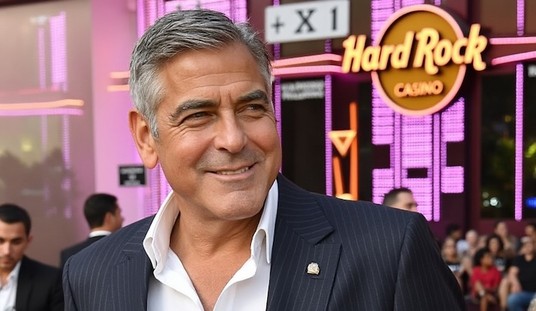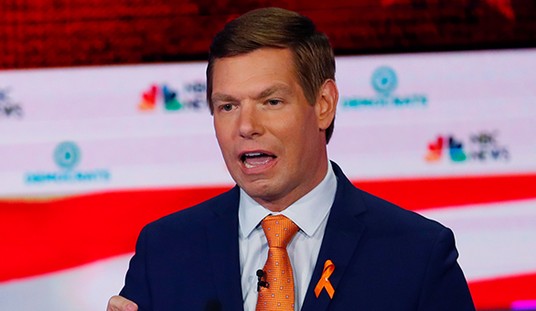What to do about Iran’s nuclear program is shaping up to be the global political conundrum of 2010. More than a year of attempts by U.S. President Obama to coax Iran into changing course on its ambitions has not yielded any concrete results. As each day passes the Islamic Republic inches ever closer to achieving a nuclear capability which no serious observer doubts is intended for military purposes.
However, this reality is not reflected in some sections of the world media. A recent UK study by Just Journalism of the Guardian’s editorial position on the Iranian nuclear program reveals a very different picture — one that continues to doubt that Iran intends to obtain the bomb, one that does not necessarily view a nuclear Iran as posing a threat, and one that blames the West for Iran’s intransigence in negotiations.
The liberal daily clearly does not accept that the Iranian regime is committed to becoming a nuclear state in spite of the ample evidence to the contrary. A mere week after the discovery of the secret Qom facility which drew the strongest acknowledgment yet in the Guardian of Iran’s nuclear intentions (“The likelihood that Iran’s nuclear program is wholly civilian, as its leaders continue to claim, diminishes with each unpleasant surprise”), the newspaper reverted to equivocality with respect to Iran’s motives, writing that: “While there is evidence that Iran is gaining the knowledge and the capacity to build a bomb, that is different from saying that the supreme leader, Ayatollah Ali Khamenei, has taken the decision to go ahead with a military program.”
Though he might do so if Israeli Prime Minister Benjamin Netanyahu goaded him into it. Indeed, the same editorial went so far as to claim that it would take an attack carried out by Israel to cement Iran’s desire to acquire a nuclear weapon: “Bombing Iran’s nuclear facilities — the option that Israel has been lobbying and training its pilots for — would, at the very best, only delay a nuclear bomb by a few years. It would turn the probability that Iran is making the bomb into a certainty.” Such mental acrobatics is astounding: Iran gets caught having built a secret uranium enrichment facility in the side of a mountain but it is a future strike on that facility by Israel that the Guardian identifies as providing the necessary motive for Iran to pursue a nuclear weapon at home. This is logic in reverse.
Other key examples of reluctance at the Guardian to take Iranian actions at face value include the absence of an editorial response to the discovery in December 2009 by the Times of evidence that Iran was working on a trigger device only applicable to a nuclear weapon. The scoop has never since been referenced in a Guardian editorial on the Iranian nuclear issue and certainly not because it was un-newsworthy. The Obama administration launched an investigation in the wake of the Times’ expose.
Two months later, on February 11, 2010, when President Ahmadinejad claimed to have advanced the stages of uranium enrichment to the key threshold level of 20 percent, another weak response was elicited from the Guardian. The Iranian president addressed a crowd of hundreds of thousands in Tehran, saying, “I want to announce with a loud voice here that the first package of 20 percent fuel was produced and provided to the scientists.” “Trials of strength,” published the following day, once more diminished the Iranian nuclear threat by instead focusing on technical difficulties:
“In reality, there are fewer working centrifuges this year than there were last, because the original Pakistani design is inherently faulty and machines regularly break down. Nor is Iran closer to weaponizing its enriched uranium and putting it on a missile, although the IAEA’s key questions to Iran on this issue remain unanswered.”
The Guardian’s dismissive tone runs counter to the scientific consensus that 20 percent uranium enrichment is a major milestone in nuclear proliferation; from this level, obtaining weapons-grade 90 percent enrichment is relatively easy.
It is not only the refusal of the Guardian to acknowledge Iran’s nuclear intentions that is questionable. It is also not clear that the newspaper regards the prospect of a nuclear Iran as something to worry about in any case. Despite a recurring editorial theme of instability and violence inside Iran, not once does the publication vocalize concerns about the danger of this unstable theocratic government becoming a nuclear power. The connection is simply never made.
On one occasion the anxiety felt in the region about the Iranian nuclear program was alluded to, but the newspaper stopped short of setting out the reasons why. Upon the discovery of the secret enrichment site in Qom, the Guardian noted: “This adds further weight to the fear of every Arab state in the region: that Iran’s nuclear program is run by the military.” Given that the newspaper applies terms such as “appalling” to describe the prospect of a military strike on Iran, it is extremely noteworthy that the prospect of Iran gaining a nuclear capability itself invites no such bluster and for the most part attracts only silence.
Incredibly, the harsh criticism is reserved for Israel, which the Guardian depicts as desperate for a fight with Iran. The same editorial which cites Arab concerns about a nuclear Iran depicts Israel as merely the cynical beneficiary of the Qom facility discovery rather than an additional party with legitimate concerns: “Iran’s cat-and-mouse game with nuclear inspectors hands a propaganda victory on a plate to Binyamin Netanyahu, the Israeli premier who has made little secret of his air force’s preparations for a long-range air strike.” Needless to say, none of the editorials mention Iran’s regular and public threats against Israel, most notably to “wipe [it] off the map.”
The Guardian’s response to Iran’s blanket rejection in December 2009 of the West’s proposal to enrich uranium abroad for explicitly civilian purposes betrays an almost reflexive denial about causality in the publication. After hailing the proposal in an editorial on October 23, the newspaper reverted to criticizing the West — the U.S. in particular — when Iran failed to accept the deal in December. “On collision course, again” (Dec. 15, 2009) cited “giving diplomacy no more than three months to work” and “limiting the talks to the enrichment process alone” as reasons for the failure to secure a deal. Nowhere in the leading article did the Guardian implicate Iran itself for refusing to compromise.
On the practical issue of how to proceed, the Guardian remains vehemently against military action, arguing that such a strike would “be the start of a conflagration that would spread rapidly from the Strait of Hormuz to Iraq, Afghanistan, Israel, Gaza and Lebanon.” It also strongly opposes sanctions: “Would tougher sanctions work? In a word, no.” This position persists in spite of Iran’s rejection of the West’s offer to enrich uranium abroad and its provocative announcement that it has reached 20% enrichment at home. It is not at all clear what, if anything, would alter this entrenched stance.
What is missing from the Guardian’s editorial narrative on Iran is any real sense that the country is responsible for its own actions. When Iran takes obvious steps towards becoming a nuclear state, its intentions are portrayed as by no means clear. When Iran rejects a perfectly good offer for uranium enrichment abroad, it is the West’s fault for making the length and scope of the talks too limited. It is all very well to continue to favor perpetual talks over diplomatic or military sanctions, but surely the Guardian ought to expect Iran to play a constructive role in this process or at least hold Iran to account if it chooses not to. Otherwise, one is invited to think that the liberal broadsheet views a nuclear Iran as an acceptable inevitability.









Join the conversation as a VIP Member